
Fort Sumter is a sea fort built on an artificial island near Charleston, South Carolina to defend the region from a naval invasion. It was built after British forces captured and occupied Washington during the War of 1812 via a naval attack. The fort was still incomplete in 1861 when the Battle of Fort Sumter occurred, sparking the American Civil War. It was severely damaged during the battle and left in ruins. Although there were some efforts at reconstruction after the war, the fort as conceived was never completed. Since the middle of the 20th century, Fort Sumter has been open to the public as part of the Fort Sumter and Fort Moultrie National Historical Park, operated by the National Park Service.

The Battle of Fort Sumter was the bombardment of Fort Sumter near Charleston, South Carolina by the South Carolina militia. It ended with its surrender by the United States Army, beginning the American Civil War.
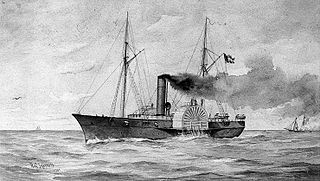
CSS Nashville was a brig-rigged, side-paddle-wheel passenger steamer that served with the Confederate Navy during the Civil War.

Robert Barnwell Rhett was an American politician who served as a deputy from South Carolina to the Provisional Confederate States Congress from 1861 to 1862, a member of the US House of Representatives from South Carolina from 1837 to 1849, and US Senator from South Carolina from 1850 to 1852. As a staunch supporter of slavery and an early advocate of secession, he was a "Fire-Eater", nicknamed the "father of secession".

Francis Wilkinson Pickens was an American slave owner and politician who served as governor of South Carolina when that state became the first to secede from the United States. A cousin of Senator John C. Calhoun, he was born into the Southern planter class. A member of the Democratic Party, Pickens became an ardent supporter of nullification of federal tariffs when he served in the South Carolina House of Representatives before he was elected to the United States Senate.
Emma Edwards Holmes was a resident of South Carolina who kept a diary during the American Civil War. This document has since been published as The Diary of Miss Emma Holmes, 1861-1866 by the Louisiana University Press. It is thought to be a historically significant document due to Emma's in-depth accounting of events occurring during the American Civil War.
The history of Jews in Charleston, South Carolina, was related to the 1669 charter of the Carolina Colony, drawn up by the 1st Earl of Shaftesbury and his secretary John Locke, which granted liberty of conscience to all settlers, and expressly noted "Jews, heathens, and dissenters". Sephardi Jews from London were among the early settlers in the city and colony, and comprised most of its Jewish community into the early 1800s.

James Chesnut Jr. was an American lawyer and politician, and a Confederate functionary.

Robert Smalls was an American politician, publisher, businessman and maritime pilot. Born into slavery in Beaufort, South Carolina, he freed himself, his crew and their families during the American Civil War by commandeering a Confederate transport ship, CSS Planter, in Charleston harbor, on May 13, 1862, and sailing it from the Confederate-controlled waters of the harbor to the U.S. blockade that surrounded it. He then piloted the ship to the Union-controlled enclave in Beaufort–Port Royal–Hilton Head area, where it became a Union warship. His example and persuasion helped convince President Abraham Lincoln to accept African-American soldiers into the Union Army.
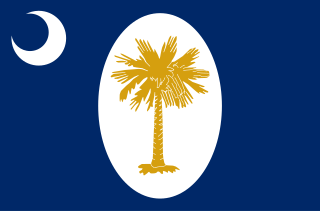
South Carolina was the first state to secede from the Union in December 1860, and was one of the founding member states of the Confederacy in February 1861. The bombardment of the beleaguered U.S. garrison at Fort Sumter in Charleston Harbor on April 12, 1861, is generally recognized as the first military engagement of the war. The retaking of Charleston in February 1865, and raising the flag again at Fort Sumter, was used for the Union symbol of victory.

Charleston, South Carolina, was a hotbed of secession at the start of the American Civil War and an important Atlantic Ocean port city for the fledgling Confederate States of America. The first shots against the Federal government were those fired there by cadets of the Citadel to stop a ship from resupplying the Federally held Fort Sumter. Three months later, the bombardment of Fort Sumter triggered a massive call for Federal troops to put down the rebellion. Although the city and its surrounding fortifications were repeatedly targeted by the Union Army and Navy, Charleston did not fall to Federal forces until the last months of the war. Charleston was devastated.
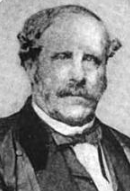
Franklin J. Moses Sr. was an attorney, planter, politician and judge in South Carolina. He served as a state senator from 1841 to 1866, when he was elected to the circuit court. He was elected as Chief Justice of the State Supreme Court in 1868 during the Reconstruction era. In 1876 he was asked to rule on a challenge to election returns in the hotly disputed gubernatorial campaign, eventually won by Democrat Wade Hampton and ending Republican domination in the state.

The Floating Battery of Charleston Harbor was an ironclad vessel that was constructed by the Confederacy in early 1861, a few months before the American Civil War ignited. Apart from being a marvel to contemporary Charlestonians, it was a strategic naval artillery platform that took part in the bombardment of Fort Sumter on April 12 and April 13, 1861, making it the first floating battery to engage in hostilities during the Civil War.

The history of Charleston, South Carolina, is one of the longest and most diverse of any community in the United States, spanning hundreds of years of physical settlement beginning in 1670. Charleston was one of leading cities in the South from the colonial era to the Civil War in the 1860s. The city grew wealthy through the export of rice and, later, sea island cotton and it was the base for many wealthy merchants and landowners. Charleston was the capital of American slavery.

Raphael Jacob Moses (1812–1893) was an American lawyer, plantation owner, Confederate officer and politician.
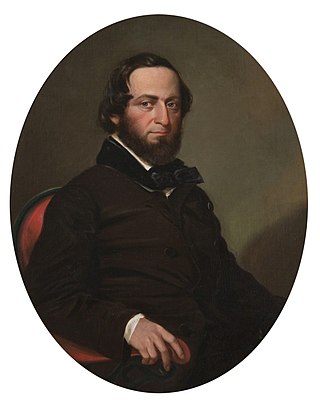
Edwin Warren Moïse (1810–1868) was an American medical doctor, lawyer, Speaker of the Louisiana House, Attorney General of Louisiana, and District Court Judge.
Henry Michael Hyams was an American lawyer, planter and Democratic politician. He served as the 7th Lieutenant Governor of Louisiana from 1862 to 1864 under Governor Thomas Overton Moore during the American Civil War, when Louisiana joined the Confederate States of America. He was an advocate of slavery in the United States.
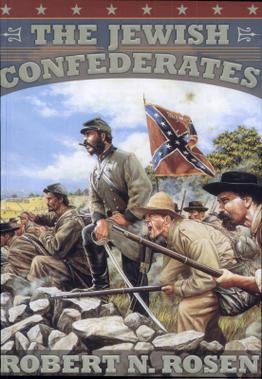
The Jewish Confederates is a 2001 history book authored by Robert N. Rosen about Jewish citizens of the Confederate States of America who served in the Confederate States Army (CSA) during the American Civil War of 1861–1865. As they made up just 0.2% of the CSA, their story had not been heavily researched before Rosen, a Jewish lawyer in Charleston, South Carolina, with a master's degree in history from Harvard University, authored the book. It received both praise and criticism in many academic journals. Rosen has written two more books about the city of Charleston.

Confederate Defenders of Charleston is a monument in Charleston, South Carolina, United States. The monument honors Confederate soldiers from Charleston, most notably those who served at Fort Sumter during the American Civil War. Built with funds provided by a local philanthropist, the monument was designed by Hermon Atkins MacNeil and was dedicated in White Point Garden in 1932. The monument, standing 17 feet (5.2 m) tall, features two bronze statues of a sword and shield-bearing defender standing in front of a symbolic representation of the city of Charleston. In recent years, the monument has been the subject of vandalism and calls for removal as part of a larger series of removal of Confederate monuments and memorials in the United States.
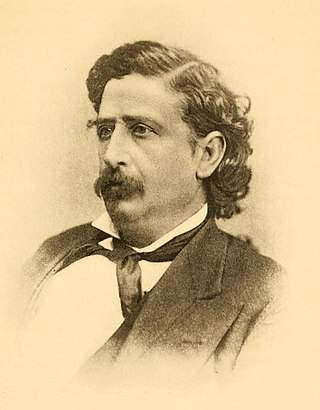
Edwin Warren Moïse was a Jewish-American lawyer, Confederate officer, and Adjutant-General from South Carolina.
















